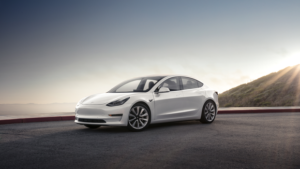About a month ago, Tesla (NASDAQ: TSLA) CEO Elon Musk did investors a disservice when he dismissed very legitimate questions from sell-side Street analysts. Musk incorrectly thought that the analysts were trying to justify their short theses, which wasn’t the case and later conceded that it was “foolish” of him to do so. Even if Musk hadn’t abruptly cut off the analysts, it’s not clear if he would have actually answered them.
In any event, investors now have to turn to third-party estimates.

Investors could have used an answer to this “dry” question
Specifically, RBC Capital Markets analyst Joseph Spak asked about Model 3 order conversion rates, which is an extremely relevant question for all investors. Here’s the exchange from the conference call:
Spak: The first question is related to the Model 3 reservations, and I was just wondering if you gave us a gauge as maybe some of the impact that the news [of production delays] has had. Like of the reservations that actually opened and made available to configure, can you let us know like what — how — what percentage have actually taken steps to configure?
Musk: We’re going to go to YouTube, sorry. These questions are so dry. They’re killing me.
Customer deposits, which are refundable and considered a liability, represent over a third of all cash currently sitting on the balance sheet, and the conversion rate would help investors get a better sense of how much of those deposits may ultimately convert to sales and recognized revenue.
A second opinion
Second Measure Research released some estimates regarding Model 3 order and refund rates, which are derived from analyzing anonymized purchase data. The estimates could suggest a possible explanation as to why Musk wasn’t willing to disclose the Model 3 order conversion rate: It could be under 10%. Second Measure estimates that in April, 23% of deposits were refunded to reservation holders, just 8% went on to actually purchase a Tesla, and the remaining 69% continued to hold their reservations or waited for their refunds to be processed.
The data also suggests that the rate of refunds has been increasing in recent months, as Tesla continues to face production challenges and delays and customers lose patience. Many reservation holders have been waiting over two years since the company first unveiled Model 3 and started taking reservations, and they may have reached a breaking point with all of the ongoing production delays.
Anecdotally, Tesla has changed the wording on its site. The company previously estimated that new Model 3 reservations could expect to take delivery in 12 to 18 months. Currently, new reservations are expected to be delivered in four to six months, suggesting that order conversions and demand aren’t as strong as anticipated. For what it’s worth, Tesla told Recode that the estimates weren’t quite accurate, but did not elaborate further.
Tesla could easily set the record straight by disclosing this figure to investors, but it probably won’t if the conversion rate is embarrassingly low.


